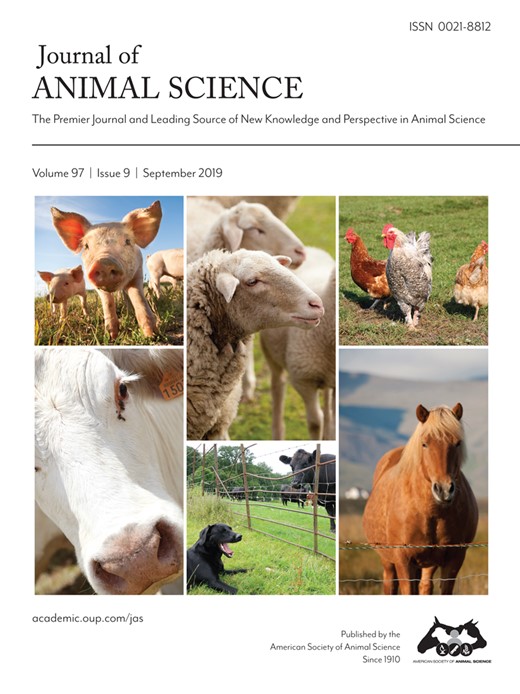-
Views
-
Cite
Cite
Mariana B Menegat, Joel M DeRouchey, Jason C Woodworth, Steve S Dritz, Mike D Tokach, Robert D Goodband, Effects of Bacillus subtilis C-3102 on sow and progeny performance, fecal consistency, and fecal microbes during gestation, lactation, and nursery periods,, Journal of Animal Science, Volume 97, Issue 9, September 2019, Pages 3920–3937, https://doi.org/10.1093/jas/skz236
Close - Share Icon Share
Abstract
This study evaluated the effects of providing a dietary probiotic, Bacillus subtilis C-3102, to sows during gestation and lactation and to progeny after weaning on performance, fecal consistency, and fecal microbes. For the sow portion of the study, 29 sows and litters were used from day 30 of gestation until weaning. Sow treatments consisted of control diet or probiotic diet with B. subtilis C-3102 at 500,000 cfu/g of gestation feed and 1,000,000 cfu/g of lactation feed. For the nursery portion of the study, 358 weaned pigs, progeny of sows on study, were used in a 42-d nursery study. Nursery treatments consisted of control diet or probiotic diet with B. subtilis C-3102 and prebiotics at 500,000 cfu/g of nursery feed. Treatments were arranged in a split-plot design with sow treatment (control or probiotic diet) as main plot and nursery treatment (control or probiotic diet) as subplot. Performance, fecal consistency by fecal score method, and fecal microbes by isolation and enumeration method were assessed. In lactation, probiotic-fed sows tended (P = 0.057) to have increased feed intake, but it did not improve (P > 0.05) sow or litter performance in lactation. In the nursery, there were no (P > 0.10) interactions or main effects of sow or nursery treatments on overall growth performance. However, pigs born from control-fed sows had greater (P < 0.05) average daily gain, average daily feed intake, and body weight in late nursery than pigs born from probiotic-fed sows. Fecal score evaluation of nursing and nursery pigs indicated no influence (P > 0.05) of sow or nursery treatments on fecal consistency. Fecal microbial analysis revealed a modest modification in fecal microbial population by increasing (P < 0.05) the number of total Bacillus sp. in probiotic-fed sows and nursery pigs. Nursing piglets born from probiotic-fed sows carried over (P < 0.05) this modification in fecal microbial population preweaning. In conclusion, providing a probiotic based on B. subtilis C-3102 to sows during gestation and lactation and to progeny after weaning did not elicit noteworthy improvements in performance or fecal consistency, but there was a benefit on sow lactation feed intake. Fecal microbial analysis indicated a maternal-progeny intestinal microbiota relationship with pigs born from probiotic-fed sows displaying similar fecal microbial population as sows. However, pigs born from probiotic-fed sows demonstrated reduced growth rate and feed consumption in late nursery.





